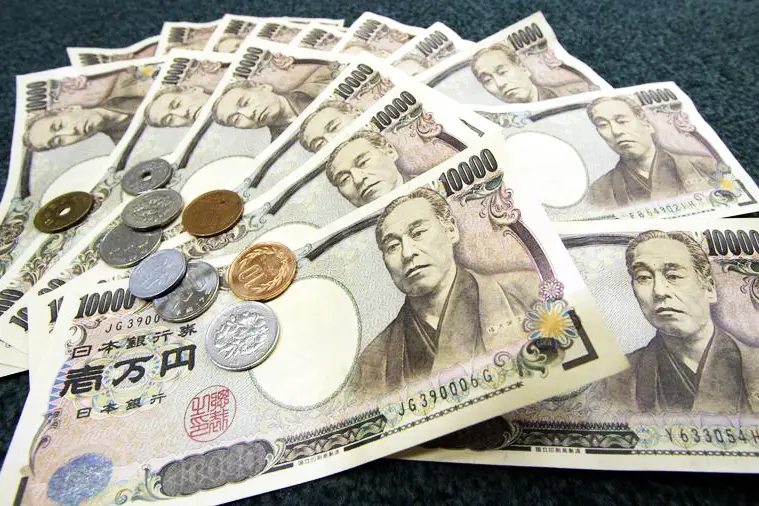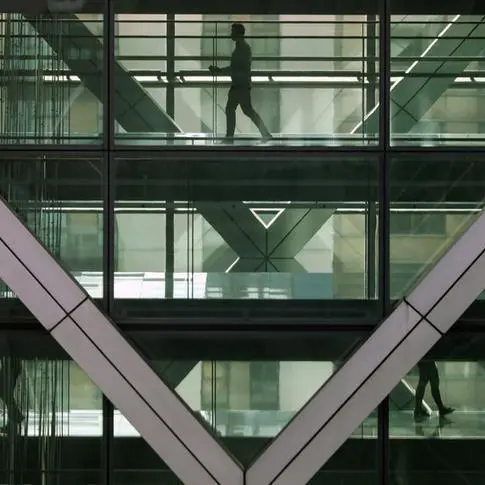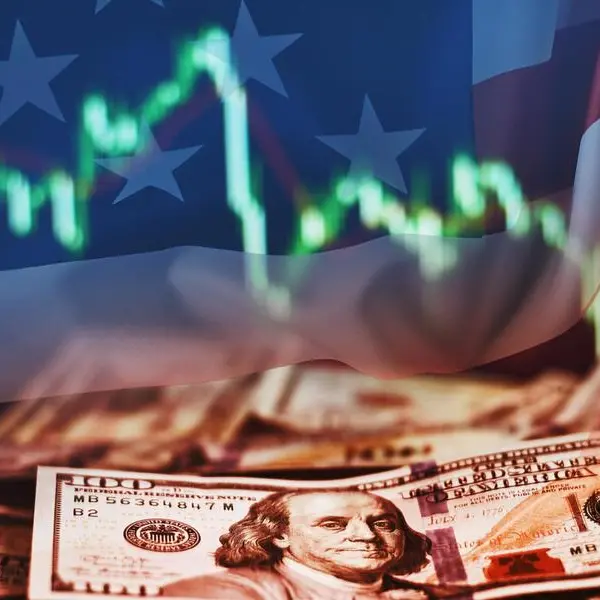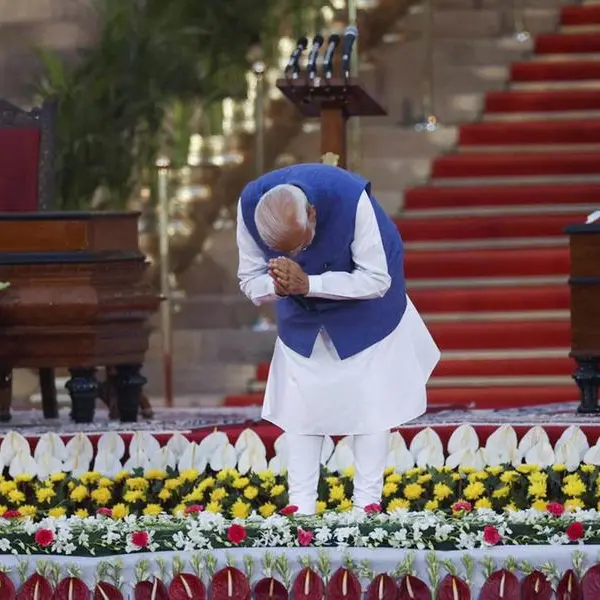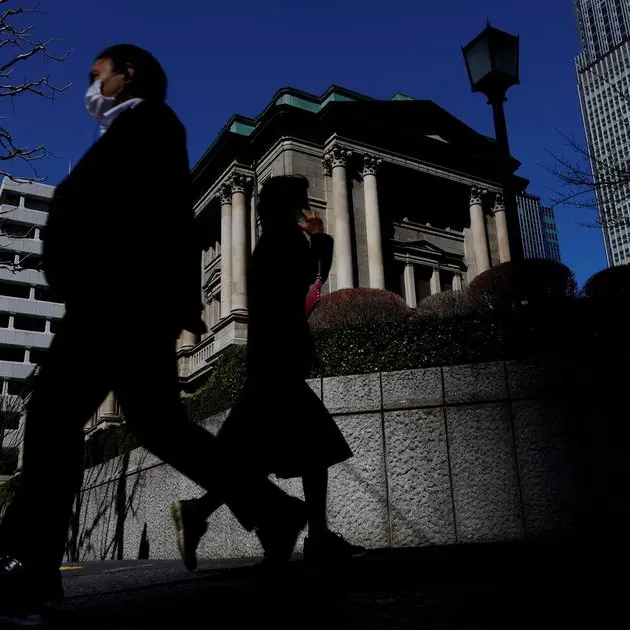PHOTO
TOKYO - The yen's fresh slide to a 34-year low complicates the Bank of Japan's deliberations on the timing of a next interest rate hike, as a resulting rise in import costs pushes up inflation but also hurts already weak consumption and the broader economy.
If that weakness persists and discourages small firms from hiking pay, the central bank may prefer to wait at least until autumn before hiking, say five government officials and sources familiar with its thinking.
The BOJ is seen raising this year's price forecast at the next meeting on April 26 and project inflation to stay near its 2% target through 2026, said two of the sources, underscoring its readiness to jack up rates from zero later this year.
But the central bank is also likely to cut this year's economic growth forecast in the fresh quarterly projections, due in part to sluggish consumption and factory output, they said.
"While wages might rise as projected, rising import prices from a weak yen could weigh on already soft consumption," said one of the sources.
The inclination to go slow on interest rate hikes contrasts with the expectations of some currency traders and BOJ watchers who think the weak yen is a reason the central bank might lift rates soon.
That expectation is based partly on the BOJ's tweaks last year to its bond yield control policy as efforts to cap long-term rates caused unwelcome yen declines that drew heat from politicians.
Former BOJ official Nobuyasu Atago said the central bank's new "data-dependent" approach would mean it will wait until the April-June gross domestic product data, due on Aug. 15, to confirm whether growth would indeed rebound, before raising interest rates.
"Unless the yen's fall become very rapid, the chance of the BOJ hiking rates by summer is very low," said Atago, chief economist at Rakuten Securities Economic Research Institute.
MIXED BLESSING
The weak yen is a mixed blessing for the economy. While giving a boost to exports, the yen's fall would hit households and smaller retailers by inflating the cost of fuel, food and raw material imports.
The fallout from the weak yen comes at a delicate time for the BOJ. Having ended eight years of negative interest rates last month, central bank policymakers are carefully gauging the right timing to hike rates again.
BOJ Governor Kazuo Ueda has said the threshold for another hike would be for big firms' bumper wage hikes to spread to smaller companies, and services prices to rise more reflecting the increase in labour costs.
The signs have been mixed so far. Consumption has lacked momentum as rising living costs hit households, which may discourage firms from pushing up prices further.
The BOJ said in a recent report that smaller firms may hike wages by as much as last year or even more. But actual data on smaller firms' pay won't be available until later this year, analysts say.
"There are some positive signs on small firms' wage outlook but actual wage increases aren't broad-based yet," said one of the sources. "It might take until autumn to determine whether a positive wage-inflation cycle is firmly in place."
Waiting until autumn would eliminate the chance of a rate hike in June or July, and heighten the possibility of action in the BOJ's September, October or December meetings.
While the market's favourite projection on the rate hike timing is in October-December, some analysts are betting on the chance of action in July after Ueda's recent comments signaling scope of reducing monetary stimulus.
While yen moves have contributed to the economic conditions that have triggered past BOJ policy shifts, the central bank's policy itself does not explicitly target the currency.
In that context, Ueda has said the BOJ was ready to respond if yen moves have a huge impact on the economy and inflation.
For now, however, concerns over Japan's fragile economy are likely to prevail and prod the BOJ to move cautiously. Two of the BOJ's nine board members dissented to the March decision to end negative rates. Even a hawkish policymaker like Naoki Tamura has said he prefers a "slow but steady" approach from here.
Political factors also raise the hurdle for an early rate hike. On the day the BOJ ended negative rates, Prime Minister Fumio Kishida told reporters it was "appropriate that accommodative monetary environment will continue" in a sign of his preference of sustained ultra-low interest rates.
"It was okay to end negative rates. But an additional rate hike is out of the question," a ruling party executive told Reuters.
"Consumption is weak and it's unclear whether inflation will keep rising," said a finance ministry official. "There's no reason for the BOJ to rush into hiking rates again."
(Reporting by Leika Kihara; Additional reporting by Kentaro Sugiyama, Yoshifumi Takemoto and Takaya Yamaguchi; Editing by Sam Holmes)
